- Audi
- Sebastian Gramstat
- Euro 7
- European Tyre and Rim Technical Organisation
- ETRTO
- U.S. Tire Manufacturers Association
- USTMA
In Need Of Uniform Regulation For Emissions
- By Sharad Matade & Gaurav Nandi
- June 30, 2025

As vehicle emissions regulations evolve, the lack of global uniformity is becoming a growing concern for OEMs and tyre manufacturers. With disparate standards across regions, companies are forced to navigate a complex regulatory maze, straining research and development and production resources. The shift towards electric mobility coupled with heightened focus on non-tailpipe emissions, such as tyre and brake abrasion, further amplifies the need for harmonised frameworks. Industry leaders including Audi’s Sebastian Gramstat argue that collaboration across borders and sectors is essential not just for compliance but for meaningful progress in sustainability and innovation.
Tyre regulations are rules and standards established to ensure that tyres used on vehicles meet safety, environmental and performance criteria. The impetus on new and updated regulations is also growing across regions to reduce pollution brought about by tyre abrasion, rolling noise etc.
The ECE R30, ECE R117, EU Tyre Labelling Regulation (2020/740), which is implemented within the European countries, or JIS Standards of Japan, CCC Certification of China, AIS 142 and BIS Certification of India and FMVSS, DOT Code and UTQG of the United States are different region-specific regulations aiming for a same outcome.
But the vastness of these regulations poses as a challenge for automobile OEMs and tyre makers alike as a lot of energy and resources have to be diverted within production and research and development lines to meet these standards.
Furthermore, the advancement of electric mobility and changes in vehicle dynamics are also slated to impose new regulations worldwide. Hence, the need for a uniform regulation has become a precondition.
Speaking to Tyre Trends on the need for uniform regulations, Dr Sebastian Gramstat, Senior Expert Development Brake System, Audi AG, averred, “Our company delivers products globally and having a unified standard is far more efficient than navigating a patchwork of regional requirements and regulations. Harmonisation brings clear operational and strategic advantages. That’s why we actively support and participate in standardisation and harmonisation working groups.”
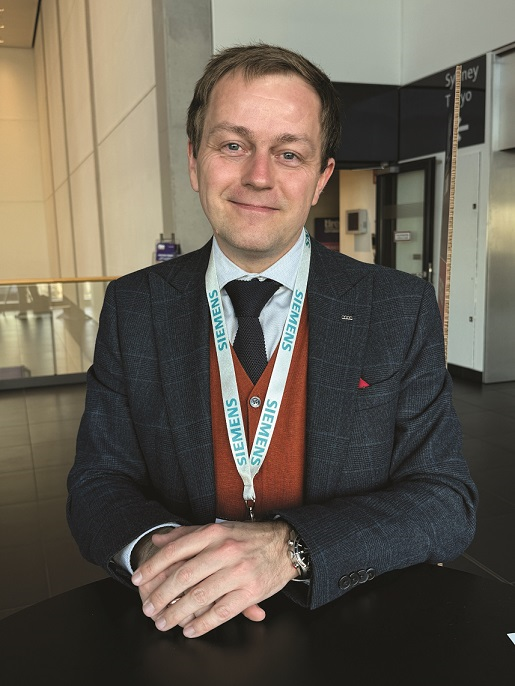 “The European Union is involved through bodies such as the Joint Research Centre (JRC), but we also recognise the unique demands of other markets, particularly the US, where customer expectations can diverge significantly. These are often beyond the immediate scope of EU regulators. Our role is to help connect these dots by facilitating dialogue, sharing insights and contributing to building a global standard that benefits the entire ecosystem. We believe this collaborative approach is not only useful but essential to moving the industry forward,” he added.
“The European Union is involved through bodies such as the Joint Research Centre (JRC), but we also recognise the unique demands of other markets, particularly the US, where customer expectations can diverge significantly. These are often beyond the immediate scope of EU regulators. Our role is to help connect these dots by facilitating dialogue, sharing insights and contributing to building a global standard that benefits the entire ecosystem. We believe this collaborative approach is not only useful but essential to moving the industry forward,” he added.
The need for uniformity is exacerbated as OEMs and tyre makers continuously amp up research and development efforts to curb noise and air pollution from tyres. “Noise pollution, particulate matter or overall tyre wear remains a challenge. And the first step to tackle it is collaboration to develop a standardised method for accurately measuring tyre abrasion and wear. We are also working on such collaborations. Without reliable quantification, you can’t evaluate whether any mitigation measure is actually effective,” said Dr Gramstat.
He added, “This method needs to be robust, applicable across a wide range of real-world scenarios and globally accepted. That’s why we’re collaborating not only with industry partners and academia but also with regulatory authorities. This effort is taking place under the auspices of the United Nations and involves close coordination with national bodies, ministries and the European Commission. The goal is to ensure that the methodology we develop isn’t just technically sound but also internationally harmonised with Euro 7 regulations and integrated into UN regulations so it can be implemented consistently across Europe, North America, Asia and beyond.”
THE EURO 7
Tyres are a crucial component of overall vehicle design to the extent that many OEMs have dedicated in-house departments focused solely on tyre development, including Audi AG. While tyres aren’t developed in isolation, the process involves close collaboration with manufacturers to meet specific, often bespoke, requirements. These custom specifications ensure the tyre aligns with the car’s performance targets and regulatory demands including type approval.
When selecting a tyre, OEMs weigh multiple parameters; safety, performance and comfort are chief among them. But increasingly, attention is also given to sustainability and economy. Factors like tyre abrasion, longevity and fuel efficiency are becoming just as critical, particularly as regulatory frameworks begin to formalise such requirements.
Ultimately, the process involves balancing trade-offs. As Dr Gramstat put it, no tyre can deliver 100 percent on every metric. The goal is to find the best possible compromise – one that supports a premium product and meets both regulatory standards and consumer expectations.
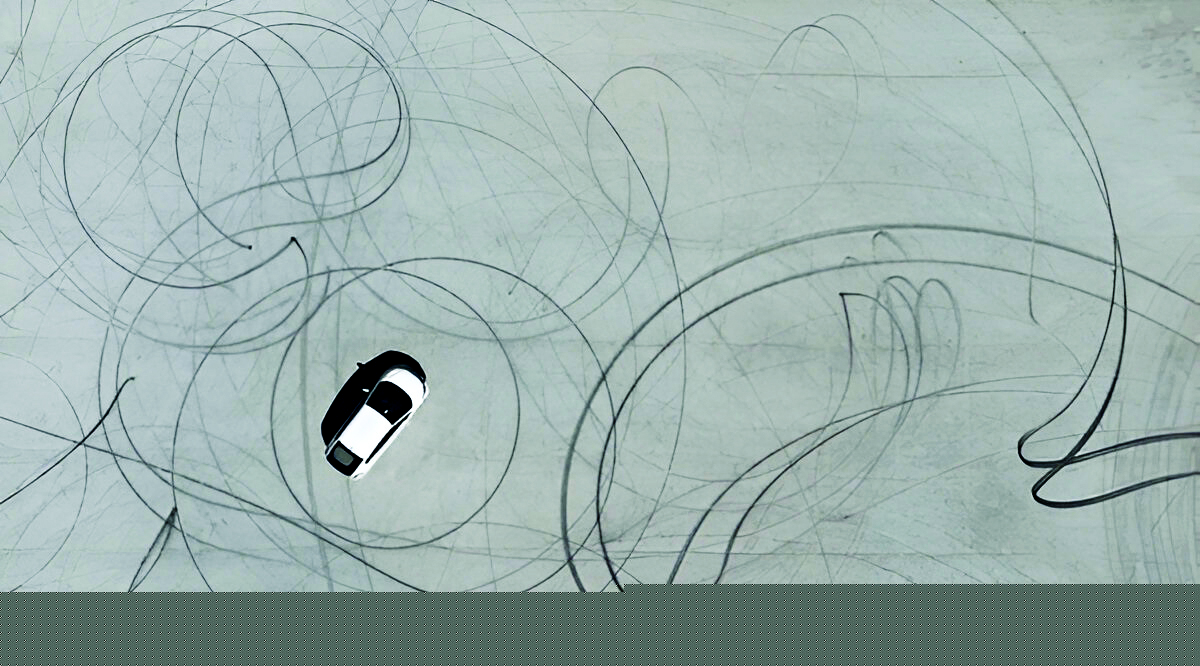
Euro 7 is the upcoming EU vehicle emissions regulation set to take effect from 2025 for cars and vans and 2027 for trucks and buses. It introduces stricter limits on nitrogen oxides, carbon monoxide and particulate emissions, covering both combustion and electric vehicles.
It also regulates brake and tyre emissions and requires compliance under real driving conditions. It aims to cut air pollution, support the European Green Deal and standardise emission rules across vehicle types.
Alluding to whether the industry is ready to adopt the regulation, Dr Gramstat noted, “The industry is well-positioned for adoption. The European Tyre and Rim Technical Organisation (ETRTO) plays a central role in coordinating the efforts of tyre manufacturers across the continent, including legacy European brands and Asian manufacturers, with research and development and production facilities in Europe. Beyond Europe, we’re seeing strong international engagement. U.S. Tire Manufacturers Association (USTMA) is actively involved, and on the global standards side, ISO is working in parallel to develop the necessary technical frameworks. Stakeholders from China are also contributing significantly. This is no longer just a regional conversation but a truly global initiative. Experts from continents are collaborating to align regulatory, technical and industrial priorities, ensuring the tyre industry is prepared to meet the evolving demands of Euro 7 and beyond.”
Further outlining the impact of the regulation, he said, “Tyre manufacturers have largely operated under internal benchmarks for metrics like mileage and abrasion till date. Euro 7 represents a shift towards formal regulation, creating a harmonised framework that applies to the entire industry. This will undoubtedly influence existing design priorities. There’s a complex interplay between various tyre performance criteria such as wet grip, rolling resistance, noise and abrasion. Regulatory limits on one can impact the others, so the challenge will be to minimise trade-offs while maintaining overall performance. At this stage, it’s difficult to offer a one-size-fits-all answer. The impact will vary depending on vehicle type.”
REPLACEMENTS
Premium automobile OEMs like Audi have been using tyres from premium European tyre makers for decades. But as the status of Asian manufacturers changes, there might be room for such companies within the supply chain of premium car makers.
“At the end of the day, it’s not about the brand label but meeting the technical and performance specifications we define. Whether a supplier operates in the premium or high-volume segment, what matters is its ability to fulfil our requirements. If a manufacturer can meet those benchmarks and is willing to collaborate and co-develop with us, then they’re absolutely welcome. Competition in the supplier landscape is a positive force. It drives innovation, efficiency and ultimately better outcomes for the end consumer. We believe valuable ideas can come from any corner of the market and we’re open to partners who share our commitment to quality, performance and progress,” said Dr Gramstat.
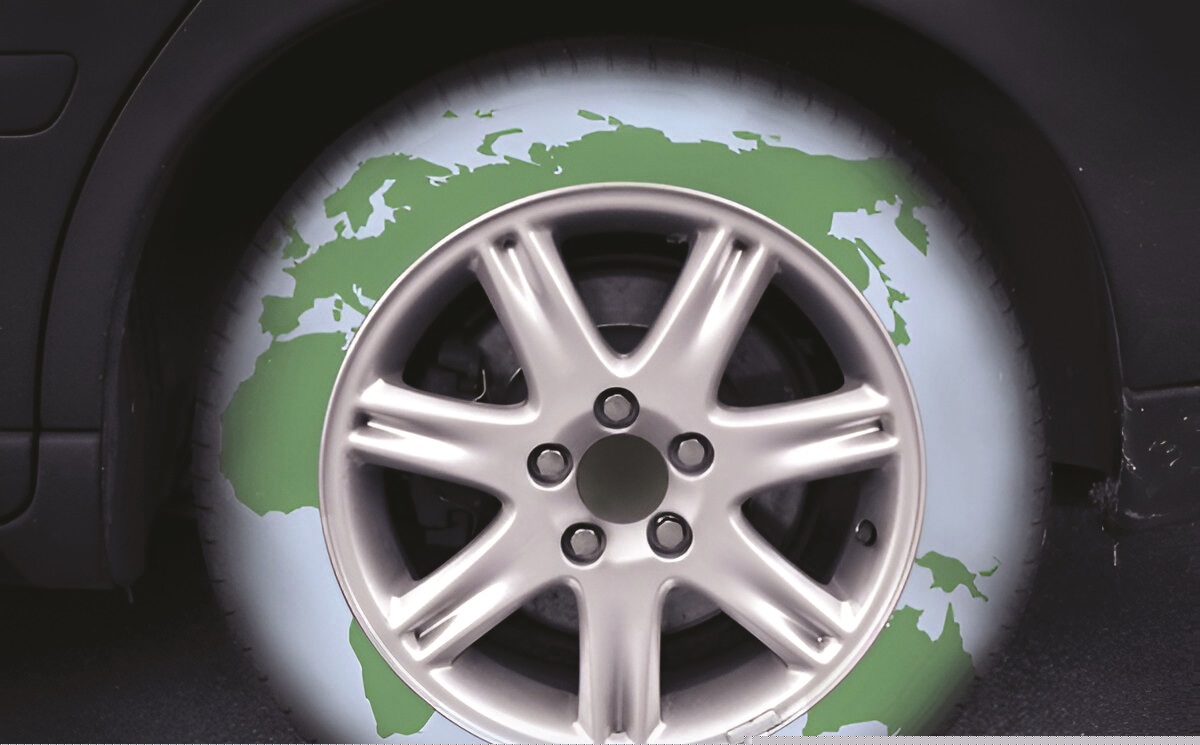
He also acknowledged that there is a growing trend within the company to include tyres made from renewable and recycled materials. “The move towards sustainable materials is more than a marketing exercise. It’s becoming embedded in product development strategies across the industry. We’re already seeing recycled content being integrated into certain product lines, and the ambition from suppliers to scale this up is very real. What’s encouraging is that this isn’t limited to one-off pilot products. There’s genuine momentum towards making sustainability a core part of tyre manufacturing. For us, this aligns with our broader sustainability goals, and we see it as a critical area of innovation moving forward,” said Dr Gramstat.
However, the executive emphasised the importance of maintaining a balance too. According to him, sustainability is just one of several key factors in vehicle design while others include safety, comfort, performance and cost. He stressed that no single aspect, including sustainability, could come at the expense of another.
To meet these multi-dimensional goals, additional research and development efforts are required to create a product that meets safety and performance standards while also addressing environmental concerns. Economy remains a consideration as well. Internal research conducted under a European-funded project suggested that customers are, in fact, willing to pay a premium for more sustainable products but only up to a point. Price sensitivity remains a limiting factor.
Turning towards next-generation tyre concepts such as airless tyres, Dr Gramstat noted that innovative ideas like this were once viewed as distant possibilities but are now gaining traction. He cited the LEON-TI project from four years ago, in which airless tyre prototypes were first explored. Since then, similar concepts have been tested by various companies, including in pilot programmes for commercial delivery fleets in Asia.
Although these innovations show promise, particularly for reducing noise emissions and improving durability, they are still in advanced development stages.
THE FUTURE IS CHANGING
As the automotive industry moves towards electrification, the conversation around ‘zero-emission’ vehicles is evolving. Dr Gramstat acknowledged that while electric vehicles eliminate tailpipe emissions, other sources of pollution such as brake and tyre abrasion remain unaddressed in regulatory terms.
Currently, there are no standardised methods for measuring particulate emissions from these sources, but the industry is actively working on it. According to the executive, regulatory bodies and stakeholders are collaborating to develop measurement frameworks. Once these standards are in place, automakers will be able to quantify non-tailpipe emissions and provide a more accurate assessment of a vehicle’s overall environmental footprint.
The executive stressed that collaboration across the value chain is essential, especially between vehicle manufacturers and tyre companies. Such partnerships already exist within serial and advanced development efforts, including participation in the United Nations’ GRBP task force, which brings together manufacturers, tyre associations and regulators to advance tyre abrasion standards.
Weight reduction remains another key challenge. Automakers continue to look for ways to decrease vehicle mass but face constraints. Safety regulations now require more sensors and electronic control units (ECUs), which cumulatively increase vehicle weight. Although each component adds little individually, the growing number of sensors and accompanying wiring has a significant cumulative impact.
As for tyre development, the question of smart tyre was also addressed. While such technology offers valuable insights during research and development phases, Dr Gramstat expressed scepticism about its near-term viability for mass-market vehicles.
KraussMaffei Technologies Appoints Dirk Musser As New Managing Director
- By TT News
- February 27, 2026

KraussMaffei Group is set to implement a leadership transition at its subsidiary, KraussMaffei Technologies, with a change at the board level. Jörg Stech, who has served as Chairman of the Board and global head of injection moulding, automation and additive manufacturing since 2023, will be departing on 31 March 2026 at his own request. He will be succeeded by Dirk Musser, the current Head of Group Transformation at the parent company, who has been appointed as the new Managing Director effective 1 April 2026. The leadership handover between Stech and Musser is already in progress, ensuring a seamless transition.
Stech’s tenure unfolded during a difficult economic period marked by financial losses and a contracting market. He responded with decisive measures aimed at margin enhancement and balance sheet improvement, which laid the groundwork for the company's long-term stability. Under his direction, the product lineup for injection moulding and automation was revitalised with the introduction of the LRXplus linear robot, the fully electric PX series and the MC7 control system, all launched in late 2025 alongside new artificial intelligence tools. He also launched a multi-year development initiative and pushed the company into new markets, such as aerospace and drone technology, by leveraging expertise in specialised processes like ColorForm. Through a focus on operational excellence, pricing discipline and capital efficiency, Stech guided the company to a significantly more resilient position compared to three years prior, despite the persistent downturn in injection moulding.
Musser brings to his new role extensive experience in transformation and finance. In his current capacity, he has already been closely involved with KraussMaffei Technologies, collaborating with its leadership to drive strategic initiatives and enhance operational performance. His qualifications include sharp analytical abilities, a strong grasp of industrial processes and a broad international perspective. An economist by training, Musser has accumulated over 20 years of leadership experience across various technology and industrial sectors. His background includes leading major transformation and turnaround projects at CRRC New Material Technologies, where he stabilised plant earnings in North America, as well as directing operational and financial restructurings during his time at Deloitte. He has also held roles with P&L responsibility, managing global supply chains and post-merger integrations at CRONIMET and has prior experience with automotive manufacturers including Daimler and Fujian Benz Automotive in China.
Alex Li, CEO, KraussMaffei Group, said, "Jörg Stech took on responsibility in a difficult situation, set clear priorities and launched decisive initiatives. The successful market launch of the LRXplus linear robot and the all-electric PX machine series, the consistent focus on profitability and the sustainable strengthening of our balance sheet are visible results of this work. We would like to express our sincere thanks to Jörg Stech for his leadership, integrity and team spirit. We value Dirk Musser as a leader who combines strategic clarity with operational excellence. In a short period of time, he has provided vital impetus for the transformation of the group and impresses with his analytical strength, decisiveness and deep understanding of our processes – not least through his successful collaboration with the managing directors of KraussMaffei Technologies. We are convinced that he will continue on this path with clarity and creative drive to successfully align KraussMaffei Technologies."
Stech said, "After many years in an environment full of technological, economic and geopolitical challenges, I look back with great gratitude on a time in which I was always surrounded by an exceptional workforce. Together, we achieved things that many initially thought were impossible. This cooperation, this willingness to push boundaries and create something new, was a joy for me. My special thanks go to all stakeholders in the company and, of course, to all employees. I leave with respect, gratitude and the conviction that this long-established company will continue to achieve great things in the future."
Musser said, "Together with my fellow managing directors Dr Frank Szimmat and Markus Bauer, I want to resolutely drive forward the further development of KraussMaffei Technologies. Our focus is on further expanding stability and performance and taking the necessary steps to successfully position the company in a dynamic market environment. I look forward to shaping this path together with our teams.”
Dario Marrafuschi Succeeds Mario Isola As Pirelli’s Head Of Motorsport
- By TT News
- February 27, 2026
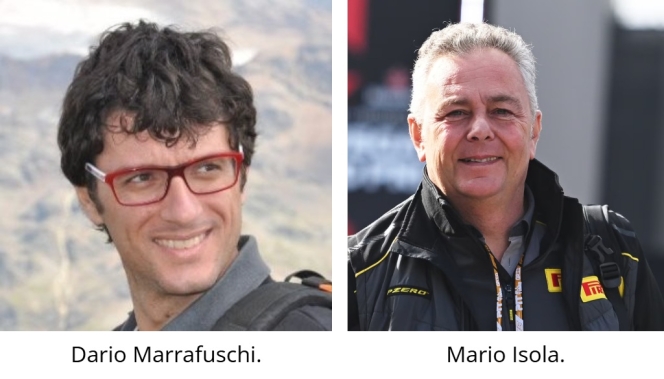
Italian tyre manufacturer Pirelli has announced that Dario Marrafuschi will become the Head of its Motorsport Business Unit, effective 1 March. He succeeds Mario Isola, who will remain with the company until 1 July to assist with the leadership transition.
Marrafuschi joined Pirelli in 2008 and has held positions within the Formula 1 Research and Development department. Most recently, he led the development of the company's road products.
He will report to Giovanni Tronchetti Provera, Executive Vice-President of Sustainability, New Mobility & Motorsport. The appointment comes as the company continues its role as the tyre supplier for various global motorsport categories.
Isola departs the company following a tenure that included the expansion of Pirelli’s motorsport operations. The company stated that Isola will pursue other professional opportunities following his departure in July.
Changing Tyre Dynamics In A Changing Car Market
- By Sharad Matade
- February 27, 2026
For Continental Tires India, the passenger vehicle market in India is entering a phase where scale and structure are finally aligning with its longstanding premium ambitions. Passenger vehicle sales reached a record 4.3 million units in 2024, expanding by 4–5 percent year on year, but it is the composition of that growth – rather than the headline volume – that is reshaping the company’s strategy. Utility vehicles now account for approximately 58 percent of total passenger vehicle sales, up sharply from about 51 percent the previous year, cementing SUVs and crossovers as the dominant force in the market.
This structural shift has direct consequences for tyre manufacturers operating at the upper end of the value spectrum. Larger vehicles bring higher kerb weights, bigger wheel diameters and greater expectations around refinement, safety and performance. For Continental, the change represents not merely an increase in addressable demand but a decisive move towards tyre categories where technology differentiation and pricing discipline can coexist.
Samir Gupta, Managing Director of Continental Tires India, calls this phase a turning point, not a temporary high. He says the surge in utility vehicles – driven by electrification and more premium cars – fundamentally changes the economics of the passenger tyre market in India.
“Let me clarify one thing first. The utility vehicle segment is no longer small. Last year, around 60 percent of passenger vehicles sold in India were utility vehicles, and including first-time buyers upgrading within this segment, the share goes beyond 65 percent,” Gupta says.

Industry data broadly supports this assessment. SUVs alone contributed close to three-fifths of all passenger vehicle sales in 2024, with compact utility vehicles accounting for a significant share of incremental volumes. The overall passenger vehicle market, at around 4.3 million units, has thus become structurally skewed towards larger formats – an inflection with long-term implications for tyre sizing, load ratings and product mix.
This shift shows in replacement demand. As vehicle footprints grow, rim diameters are increasing. “The market is clearly moving from smaller to bigger rim sizes. Demand for 17-inch and above tyres is rising sharply,” Gupta says. While these tyres are still a minority, their growth far outpaces the overall passenger tyre market.
Electrification is accelerating the shift. A substantial proportion of electric passenger vehicles sold in India today are SUVs, and Continental expects EVs to account for more than 50 percent of the passenger vehicle segment within five years. For tyre manufacturers, this creates new technical requirements – higher torque tolerance, lower rolling resistance and stringent noise control. “That creates a significant opportunity for us because our strengths lie in premium, high-performance tyres,” Gupta says.
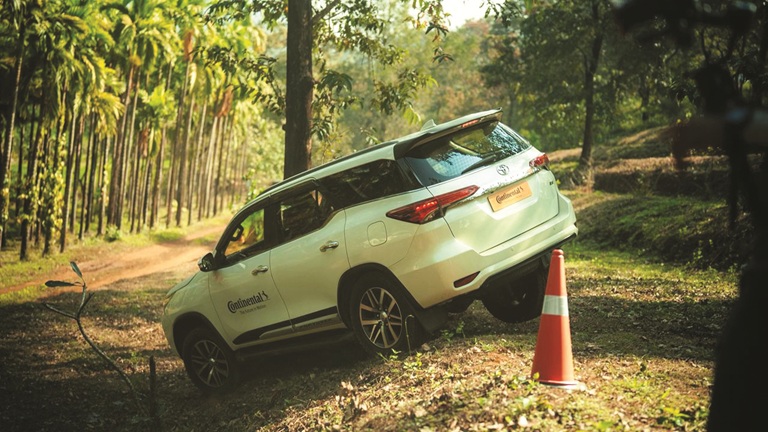
Despite these favourable structural trends, premium tyres have historically struggled to gain traction in India. For much of the past decade, the market remained intensely price-sensitive, with tyres treated largely as commoditised replacement items. Continental’s response, Gupta explains, has been consistent rather than tactical pricing. “Right from the beginning, we have focused on fair pricing. The idea is simple – if we can clearly differentiate on performance and consistently deliver on those promises, price recovery will follow,” he explains.
The broader environment is now becoming more supportive. As vehicle prices rise and consumers migrate towards larger, more sophisticated vehicles, willingness to spend on tyres that enhance safety, comfort and driving confidence is increasing. This trend is also evident at the top end of the market. Premium and luxury passenger vehicle sales reached approximately 51,500 units in 2024, up around 6 percent year on year and crossing the 50,000-unit threshold for the first time – a symbolic marker of premium consumption in India.
Gupta sees premiumisation extending beyond luxury vehicles. “Earlier, India was extremely price-sensitive, but that is changing in higher segments. Consumers are upgrading vehicles and are more willing to invest in tyres that enhance safety, comfort and confidence,” he says.
The intensification of competition, with global premium tyre brands expanding or re-entering India, is viewed as a positive development. “Competition is always good,” Gupta says. “It gives you room to grow and improve.” More importantly, he believes it will help reframe the market. “More premium players will help move the market away from being purely cost-driven to being value-driven,” he adds.
Replacement market dynamics reinforce this view. Of the roughly 32–33 million passenger tyres replaced annually in India, tyres sized 17 inches and above account for about 12–13 percent. While the overall replacement market grows at 5–6 percent per year, this high-diameter segment is expanding at over 20 percent annually, closely tracking the shift in new vehicle sales.
This sharper focus on passenger tyres also explains Continental’s decision to exit the truck and bus radial segment in India. Gupta stresses that the decision was strategic rather than operational. Continental entered the TBR market in 2014, invested significantly and received strong feedback on product performance.
However, the economics proved limiting. Gupta says, “TBR in India is largely a B2B, fit-for-purpose market. Even if you have the best tyre, willingness to pay remains limited because fleet operators are under constant margin pressure.” Although commercial tyres offer higher absolute margins per unit, they consume substantially more raw material. “One commercial tyre uses six to eight times the raw material of a car tyre. Percentage margins are actually higher in passenger tyres,” Gupta explains.
After reviewing its portfolio, Continental chose focus over breadth. Exiting TBR allows the company to concentrate capital, technology and management attention on passenger and light truck tyres, where differentiation is more readily monetised. Gupta rejects the idea that a narrower portfolio weakens the company’s position. Commercial and passenger tyre customers, he argues, are fundamentally different – one driven by procurement economics, the other by consumer perception and emotion.
Indian consumers, Gupta believes, are becoming more tyre-aware. “Premiumisation is happening across the vehicle industry, not just in tyres. As consumers move to larger and more premium cars, their expectations also rise,” he says. Where tyres were once treated as an afterthought, buyers increasingly recognise their role in braking, grip, noise and overall driving confidence.
This change is evident at the retail level. Continental now operates more than 200 brand stores across India, and feedback from retail partners suggests customers are more informed and more demanding. Availability remains critical. “There is no point launching premium tyres if customers cannot find them,” Gupta says.
To support future demand, Continental is investing around INR 1 billion at its Modipuram plant, with the focus squarely on passenger and light truck tyres. The expansion will extend manufacturing capability from the current 20-inch limit to 22–23 inches, aligning local production with emerging vehicle trends.
Localisation, Gupta argues, is about adaptation rather than compromise. Indian road conditions, climate and driving habits require specific tuning without diluting global performance standards. Education and availability remain the principal challenges.

The recent launch of the CrossContact A/T² in India reflects this strategy. Introduced during Continental’s Track Day at Dot Goa 4x4, the product positions India among the early global markets for the tyre. “The first thing you notice is noise – or the lack of it,” Gupta says. “You hear the air-conditioning, not the tyre.” Ride comfort, grip and consistency across terrains define its appeal. As Gupta puts it, “Jahan tak soch jaati hai, wahan tak yeh tyre kaam karta hai.”
Looking ahead, Continental remains largely insulated from shifts in original equipment strategies, such as the gradual removal of spare tyres. Improved carcass design and stronger sidewalls are reducing puncture risk, but the company’s primary focus remains the replacement market.
For Gupta, the question is no longer whether India is ready for premium tyres, but how effectively manufacturers execute. “The market is finally ready for premium tyres,” he concludes. With passenger vehicle sales at record levels, SUVs firmly dominant and premium consumption expanding, Continental believes it is well positioned to grow alongside India’s evolving mobility landscape.
Falken Tyre Europe GmbH Rebrands As DUNLOP Tyre Europe GmbH
- By TT News
- February 26, 2026

Falken Tyre Europe GmbH has officially transitioned to operating under the name DUNLOP Tyre Europe GmbH, following its formal registration with the Offenbach Local Court. This change signifies a pivotal development for the Sumitomo Rubber Industries subsidiary. The rebranding represents a calculated and essential move to establish a more formidable European footprint for the DUNLOP brand. Company leadership acknowledges that this evolution is built upon the considerable equity established by Falken, including its strong market recognition, unwavering product quality and the commitment of its personnel.
This strategic shift positions the organisation under the umbrella of a globally respected marque, with its future strategy firmly centred on expansion, pioneering advancements and ecological responsibility. A prominent symbol of this new chapter will be unveiled shortly, with the renaming of the DUNLOP City Tower in Offenbach. A formal ceremony will mark the occasion, featuring the presentation of the DUNLOP logo at the tower. The event is set to be attended by Offenbach's Lord Mayor, Dr Felix Schwenke, alongside the company’s managing directors, Hiroshi Hamada and Markus Bögner, and the newly enlarged DUNLOP team.
Markus Bögner, Managing Director and President, DUNLOP Tyre Europe GmbH, said, “The name change is an important milestone of which we can be very proud. It strengthens our identity and underlines that we are ready for the next steps. Our strong heritage with Falken is and remains part of our success, laying the foundations for DUNLOP’s future in Europe. Our thanks go to all our employees and partners who have supported and accompanied us on this journey.”







Comments (0)
ADD COMMENT